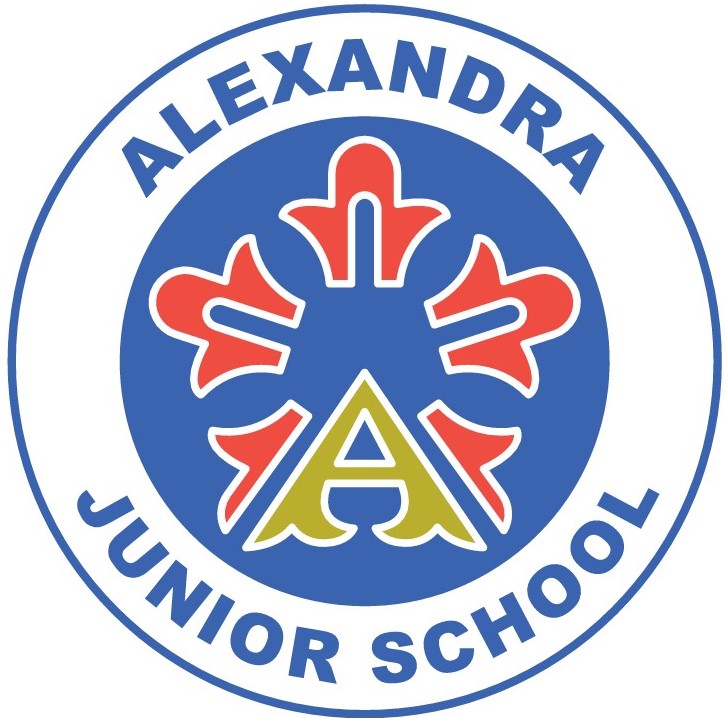Curriculum
Curriculum Intent, Implementation and Impact
(Curriculum Lead: Miss J. Rowe)
Intent:
Our curriculum’s aim is to change lives and prepare pupils for the next stage of their learning through an engaging educational experience. It takes its inspiration from, and is a response to, the needs of our community and the requirements of the National Curriculum.
Alexandra Junior School curriculum is committed to providing an exciting personalised curriculum, which is centred around developing the individual pupil, with an emphasis on healthy minds, bodies and well-being. We have the highest possible expectations of our pupils and staff and aim to develop independent, aspirational, confident and resilient pupils with the necessary learning skills, habits and enthusiasm to be successful citizens who make a positive contribution to society.
Our curriculum is designed to be aspirational and to open up the world for them to explore. Children at Alexandra Junior School are empowered to achieve their dreams; we believe that everyone has the potential to be extraordinary. We develop metacognitive skills, growth mind set, a love of learning and value the risks involved to ensure that children become resilient and confident; knowing how to manage their emotions when striving to achieve. Our curriculum enables the children to gain a common body of knowledge to which they are entitled to, set out within the National Curriculum. Our key concepts and progression in these support a deeper understanding for our children.
Key principles:
- Knowledge and skills – The knowledge and concepts children acquire through our curriculum must be powerful and planned in a systematic way. Teachers must constantly question the purpose and value of what they are teaching and how learning is structured and reinforced through the accumulation of related concepts. The more children know, the more they can build on this foundation with future learning. The acquisition of skills is also crucial because any body of knowledge is only useful if it can be applied effectively in different situations. A successful curriculum must provide both knowledge and key skills and our teachers plan consciously how these aspects work together to aid children’s learning.
- 5 Es – Driving our curriculum and responding to the needs of our community, are the following five principles – our 5 Es: Embrace yourself; Explore the world; Engage with others; Express yourself and Excel – be awesome. These drivers support children’s personal development and well-being. They encourage pupils to aim high, know themselves, be curious, work collaboratively, and be articulate.
- Language – Rooted at the heart of our curriculum is language development. We ensure that pupils are immersed in a range of opportunities to develop their oracy skills with a particular focus on developing vocabulary. We place equal importance on academic developments and personal development.
- Retrieval and retention – Our curriculum, which is progressive, ensures that prior knowledge provides the anchor for future learning opportunities. Retrieval of knowledge is a key component so that learning is embedded into long term memory. Our VIPs (Very Important Points) are integrated into curricular areas to assist retention. We are determined to ensure that our curriculum provides breadth, balance and depth for every learner across all areas of the curriculum.
- Overarching concepts – It is vital that the knowledge and skills children learn are co-ordinated and coherent. In order to achieve this in our curriculum, teachers have identified the key concepts or overarching ideas within each subject. In order that children can access them, we call these the ‘Big Ideas’. Pupils’ intellectual development and knowledge-retention is supported by structuring learning according to these few carefully selected ‘Big Ideas’ and returning to them frequently, giving context and familiar language on which to build new learning. It is essential that these ‘Big Ideas’ are continually returned to and reinforced in order to create an organised, easily-understood and progressive structure of learning. This principle is about making connections and constant reference to a bigger picture. Future learning, authentic cross-curricular understanding and the detail of deeper learning take place within this coherent structure.
- Engagement – A curriculum that fails to engage pupils will not be effective. We have identified that our pupils respond well to inspiring stimuli to generate productivity; opportunities for active or outdoor learning; and exciting tasks that allow them to explore their creativity. Wherever possible, these opportunities are built into our curriculum maps explicitly.
- At Alexandra Juniors, teachers plan when language and key terms will be introduced, explained and taught explicitly. Similarly, the ability to read fluently and understand a range of texts is essential for all future learning. Therefore, an emphasis on reading for both pleasure and information underpins the whole curriculum.
- Our curriculum fully enables the children to develop their cultural capital by fostering knowledge, skills and values and bringing them to life! We successfully integrate and support British Values in all aspects of school and are proud to be part of British society. Our curriculum develops the use of pupil voice and their ability to promote change.
- Underpinning our curriculum and opportunities is our Alexandra Promise to pupils. This promise sets out a wide range of developmentally appropriate experiences, that we firmly believe every child should experience as they grow up. These are integrated within our curriculum from year 3 – 6.
Further information can be found in our subject specific information pages.
Implementation:
- Subject leaders have worked to design curriculum maps for each subject. These are live documents that are subject to constant review and improvement. It is important to pupils’ needs and interests and for teachers to reflect on their practice.
- ‘Big Ideas’ – the teachers have identified collectively the three ‘Big Ideas’ for each subject. Reinforcing these concepts through repetition is the key to improving pupils’ retention and supporting future learning through the context of familiar ideas. The ‘Big Ideas’ relate to elements within an academic discipline, such as ‘observation’ in science, or refer to important concepts that contribute to pupils’ personal and social development, including ‘diversity’ in geography and ‘equality’ in history. It is essential that the ‘Big Ideas’ within each subject are understood by the children and become part of their common classroom language. This is achieved by using the ‘Big Ideas’ in subject-specific displays, explaining the ‘Big Ideas’ verbally and referring to them in lesson plans and by requiring the children to write them down and explain them in their own words.
- Key vocabulary will be pre-taught, revisited and extended as children progress through the year groups. Intent documents specify when key vocabulary will be introduced and explicitly taught and also when pupils will be exposed to this language in future learning.
- In order to support progression and assessment, we teach discrete subjects. We are drawing upon and responding to the traditions of individual academic disciplines. Each subject has a tradition of subject-specific vocabulary and a body of knowledge and skills; mastery of these individual disciplines then allows children to make real, robust links with other subjects and apply their knowledge and skills widely.
- In order to meets pupils’ individual needs, teachers use assessment to inform planning and raise pupils’ awareness of their next steps in learning. The primary tool for this is live-marking and feedback during lessons, which allows the opportunity for quick intervention to address errors or misconceptions.
Impact
By the end of their time at Alexandra Junior School, children will be confident within each academic discipline because they will have developed knowledge, skills and understanding within a coherent structure of recurring ‘Big Ideas’. They will have been exposed to subject-specific technical vocabulary at key times in a planned, coherent and organised way. Explicit teaching and repetition of key vocabulary and concepts will provide a structure for future learning, ensuring that pupils are ready for learning in the next stage of their education. This confidence will extend across a broad range of subjects, allowing for flexible learning in the future. Pupils will develop curiosity and a desire to acquire knowledge and experience the world around them, understanding that learning enriches their lives beyond the classroom.

